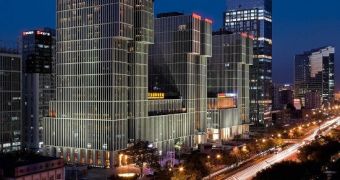It hasn't been very long since high officials in China announced that they wished to spend $275 billion (€206.17 billion) on improving air quality across the country. Apparently, Beijing's municipal government is the first to take steps towards sorting out the issue of air pollution.
Business Green tells us that, earlier this week, high officials in Beijing detailed their 5-year plan to curb air pollution in this Chinese city.
They said that, should things go as planned, the overall levels of PM 2.5 pollution in Beijing will be reduced by some 25% by 2017 at the latest.
To achieve this goal, high officials are to roll out new rules and regulations intended to limit the amount of harmful emissions released into the atmosphere by power plants, vehicles, boilers and outdoor barbecues.
Beijing's high officials wish to curb vehicle emissions by cutting down on the number of cars driven up and down on the city's streets on a regular basis.
Thus, they promise that the number of vehicles owned and operated in this Chinese city will not increase to over six million by 2016. Presently, people in Beijing own and drive a total of 5.35 million cars.
“In order to curb vehicle emissions, we have to introduce a market mechanism to reduce intensity of vehicle use,” said Li Kunsheng of the Beijing Municipal Environmental Protection Bureau.
Besides, they plan to reduce fuel consumption by 5% when compared to levels recorded in 2012.
The same source reports that, according to this detailed plan to combat air pollution in Beijing, approximately 1,200 companies will be asked to either green up their working agenda or shut down some of their facilities. Some companies might even be asked to cease all activity.
Lastly, Beijing's municipal government reassures that no new industrial facilities will be built in areas where air quality is already low. One can only assume this measure in meant to keep things from going from bad to worse.

 14 DAY TRIAL //
14 DAY TRIAL //